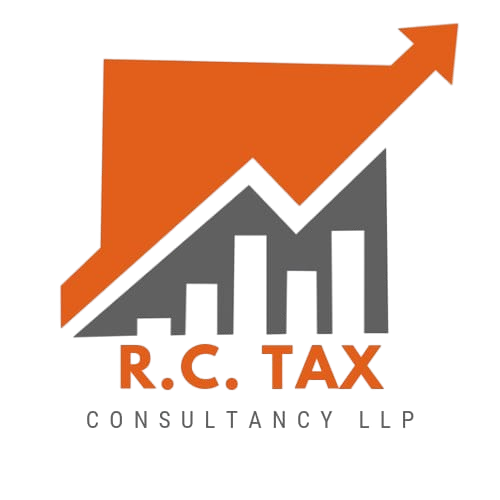For Companies
- Private Limited Company
- Public Limited Company
- LLP Incorporation
- ROC Annual Compliances
- DIN related Filings
- Digital Signature
- Company ITR Filing
- Statutory Register
- Minutes Book
- Accounting and Bookkeeping
- Tax Compliances Management
- Financial Reporting and Analysis


Private limited company
Comprehensive Guide to the Indian Private Limited Company Registration Process
In India, one of the most popular and preferred business structures is the Private Limited Company, which is governed by the Companies Act, 2013. Entrepreneurs who wish to establish a business with limited liability protection and a robust corporate structure should opt for registering as a Private Limited Company. This form of registration provides directors with limited liability and ensures a well-regulated business operation, fostering trust and credibility in the marketplace.
To register a Private Limited Company in India, it is mandatory to follow the procedures set by the Registrar of Companies (ROC), under the Ministry of Corporate Affairs (MCA). The process involves various legal requirements that must be fulfilled in compliance with the provisions of the Companies Act, 2013.
At RegisterKaro, we simplify the entire process by handling all legal requirements on your behalf, ensuring compliance with MCA regulations, and providing an efficient, affordable service to streamline the Private Limited Company Registration process. Once your company is successfully registered, you will receive the Certificate of Incorporation, which marks the official recognition of your company.
Register Your Digital Signature Certificate (DSC)
Looking to buy a Digital Signature Certificate quickly and online? RC Tax Consultancy LLP. is one of India’s leading providers of digital signatures. We offer Class 3 DSC and seamless online digital signature certificate registration in just 3 simple steps!
A Digital Signature Certificate (DSC) is an electronic equivalent of a handwritten signature, which is legally recognized under the Information Technology Act, 2000. It is used for authenticating an individual's or an organization's identity when signing or executing online business documents, ensuring secure digital communications. A DSC is issued by a Certifying Authority (CA) under the regulatory oversight of the Controller of Certifying Authorities (CCA). It plays a crucial role in ensuring security, legal validity, and data integrity in electronic transactions and communications.
The process to obtain a DSC involves registering on the Certifying Authority’s website, submitting documents such as identity proof, address proof, and a passport-sized photograph, followed by verification of the provided documents. Upon successful verification, the DSC is issued in the form of a USB token, which securely stores the certificate.
DSCs (Digital Signature Certificates) are categorized into three classes: Class 1, Class 2, and Class 3, each indicating different levels of security. These certificates are widely used in various sectors like filing income tax returns, company registrations with the Registrar of Companies (ROC), e-commerce platforms, e-tendering, and online auctions. By ensuring non-repudiation, document authentication, tamper-proofing, and preventing unauthorized access, DSCs contribute significantly to reducing the processing time of online transactions while enhancing their overall security. Services like RC Tax Consultancy offer comprehensive support for preparing documents, filing applications, and ensuring compliance with legal regulations, thereby promoting secure digital interactions for both personal and business purposes.


Limited Liability Partnership (LLP) Registration - Overview
A Limited Liability Partnership (LLP) is a hybrid business structure that merges the advantages of both partnerships and corporations. It is designed to provide flexibility in management and ownership while offering the protection of limited liability to its partners. This structure has become increasingly popular for businesses that require a balance between operational simplicity and legal protection.
In an LLP, partners have the ability to actively manage the business while protecting themselves from personal liability for the company's debts. Unlike general partnerships, where partners are personally liable for business obligations, an LLP ensures that each partner’s liability is limited to the extent of their agreed-upon capital contribution. This makes it an attractive choice for professionals such as lawyers, accountants, architects, and consultants who wish to operate a business while safeguarding their personal assets.
The formation of an LLP typically begins with choosing a suitable name for the business. This name must comply with local regulations and cannot be identical or confusingly similar to the name of an existing business. After the name is chosen, the next step is to designate at least two partners, who may be individuals or corporate entities. These partners are responsible for managing the business and making decisions in line with the objectives of the LLP.
An important step in registering an LLP is drafting an LLP agreement. This agreement serves as the cornerstone of the business and outlines the roles, responsibilities, and rights of each partner. It also establishes how profits and losses will be shared among the partners, the procedure for resolving disputes, and the process for adding or removing partners. A well-drafted LLP agreement ensures smooth operations and prevents misunderstandings among partners.
Registration Process for LLP:
- Name Reservation: Choose a unique name for the LLP and ensure that it complies with local business naming regulations. The name is usually subject to approval by the regulatory authority.
- Designated Partners: dentify and designate at least two individuals to act as partners of the LLP. At least one of the designated partners should be a resident of the jurisdiction where the LLP is being registered.
- Preparation of LLP Agreement: Draft an LLP agreement outlining the rights, responsibilities, capital contribution, profit-sharing ratio, and other terms of the partnership. This agreement serves as the backbone for the internal functioning of the LLP.
- Filing with the Authorities: Submit the required documents, including the LLP agreement, forms, and other supporting documents.
- Obtaining LLP Certificate: Upon successful registration, the authorities issue a Certificate of Registration. This certificate signifies that the LLP has been legally formed and is now recognized as a separate legal entity.






